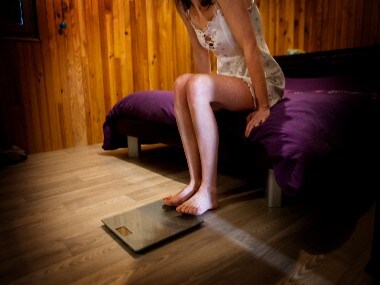The number on a weighing scale does not define you. Yet, there are some people who don’t think twice before saying something about your looks, shaming you into feeling bad about your body. Often, these people include family members and friends. (Sure, sometimes, their comments are well-meaning but that doesn’t make them less hurtful.) Now, the set of people who feel entitled to comment on your looks has grown to include anonymous people sitting on the other side of the world as well - thanks to social media. [caption id=“attachment_7878211” align=“alignleft” width=“380”]  Representational image. Image source: Getty Images.[/caption] And the comments don’t stop at your weight - they feel the need to comment on your use of heavy makeup or no makeup, body type, getting plastic surgery, and even outfit choices. Celebrities, who have a fan following of millions, are especially targetted and critiqued in this manner - this leads to many more second-hand victims, including young, impressionable minds who read those comments and believe them to be true. A study, published in the journal Body Image in 2018, found that engaging with attractive peers on social media negatively affect one’s body image. Other studies have also found that higher body dissatisfaction (or a negative body image) is associated with risk of eating and mental disorders, poor quality of life and psychological distress. It’s really a double-edged sword. If there are people who are body-shaming you, no explanation or lifestyle change will be able to change their mind. You’ll always be too much of something for them - too fat, too skinny, too fair, too dark, too short or too tall. Remember that someone bullying you doesn’t say anything about you but about the kind of person they are. There is no point in trying to please your bullies - only do what you think is good for your mental and physical health. Here are a few things you can do instead if you’re being body-shamed on social media:
1. Block toxic people and accounts
It’s not always easy to cut off from people who repeatedly put you down by shaming your body and looks. They could be your childhood friends, your favourite cousins, the popular seniors from school and even your crush. Your first step could be to confront them, especially if you think they might be doing it unintentionally and would be willing to change. If that doesn’t work, don’t hesitate to report the comments you find disturbing and then block those people on social media. If you follow any accounts that share content that makes you feel bad about yourself, unfollow those as well. You have to be conscious about who you follow to ensure that your feed doesn’t contain negative messaging.
2. Speak up when others are targetted
Sometimes speaking up for someone else comes easier than taking on your own bully. Go ahead and do that then - if you see someone posting comments that smack of body-shaming, call them out, report them if necessary and express your support to the victim. If you’re unsure about whether the person finds these comments offensive, you can also just send them a private message asking if they’re okay. A kind word from a stranger can be the silver lining in some cases. You might even find other like-minded individuals you can help by sharing your experience with them.
3. Surround yourself with positivity
Social media doesn’t have to be a negative experience for you going forward. Unfollowing negative accounts is one thing - curating your feed to include more body-positive accounts is one better. Just like motivational talks make one feel motivated, body-positive content will slowly encourage you to love your body. Try finding movements like iWeigh, celebrities like Celeste Barber - whoever and whatever makes you think about your body more positively and helps improve the relationship you share with it.
4. Change the way you speak to yourself
We have a habit of talking to ourselves in our head - and sometimes, even though we speak about our bodies positively in public, it’s a different story in our head. Make an effort to not self-bully, don’t berate yourself over your eating habits. Kindness begins with yourself. If you’re unhappy with an eating habit, say encouraging things to yourself instead of scolding yourself. If you fail, tell yourself it’s okay and that you’ll try harder the next day. Be your own cheerleader. Once you build a positive and healthy relationship with your body, no third person will be able to come in between and break that bond.
5. Practice what you preach
If you feel very strongly about body shaming, raise your voice to help others by advocating for body positivity, building a community for others who have been body-shamed, sharing your experiences and tips on how you try to manage it and participating (or even finding) in healthy social media trends like posting pictures that use no filters (#nofilter) or going makeup-free with #iwokeuplikethis. Encourage others around you to do the same.
6. Get help
If nothing you do helps you feel better about your body - and being body-shamed starts affecting your daily life or your mental health - reach out to a therapist or doctor to talk about it. Remember, asking for help when you’re suffering is nothing to be ashamed of. It does not mean that you are weak - it actually makes you stronger because you’re able to identify when you need help and what is best for you. For more information, read our article on Eating Disorder_._ Health articles in Firstpost are written by myUpchar.com, India’s first and biggest resource for verified medical information. At myUpchar, researchers and journalists work with doctors to bring you information on all things health.


)

)
)
)
)
)
)
)
)



